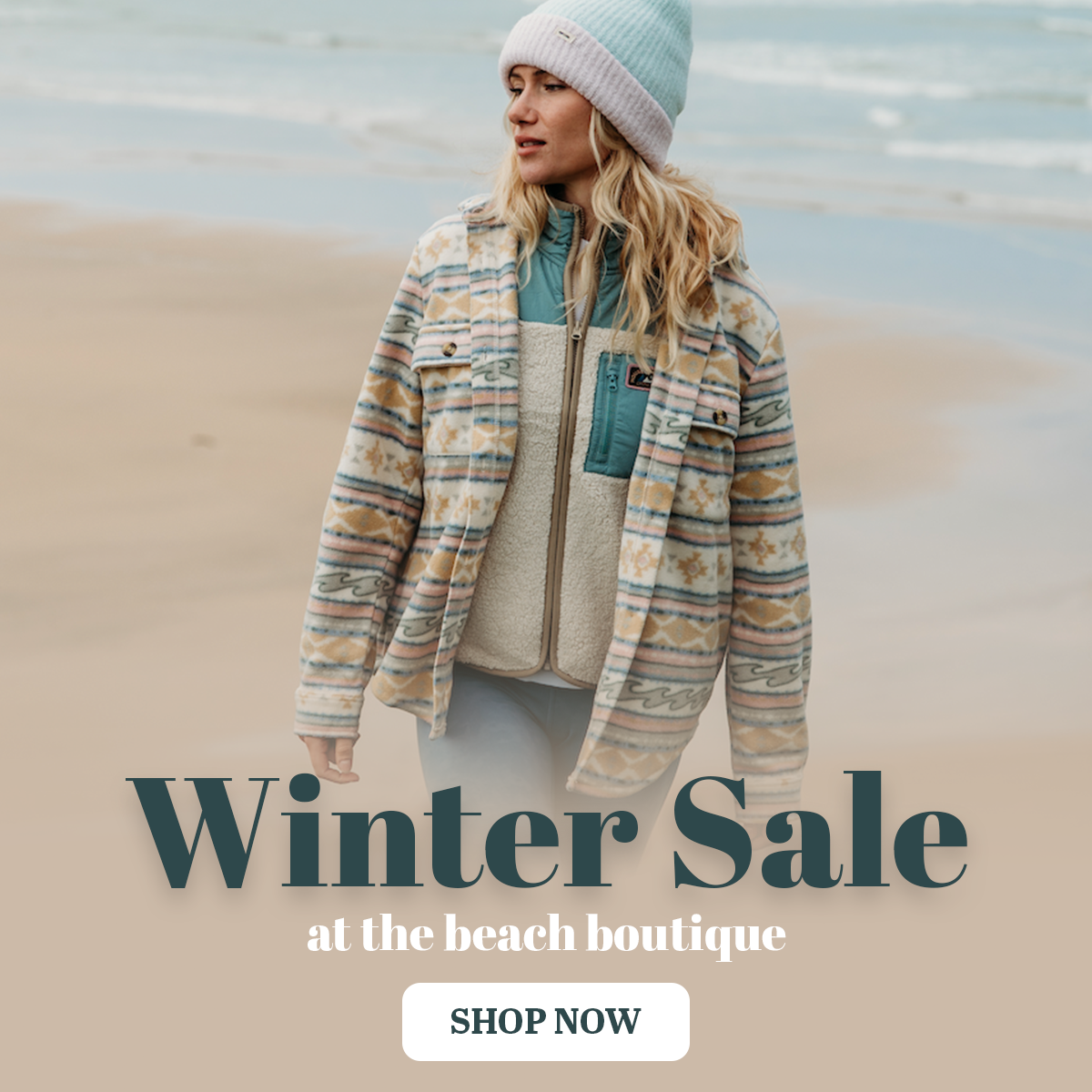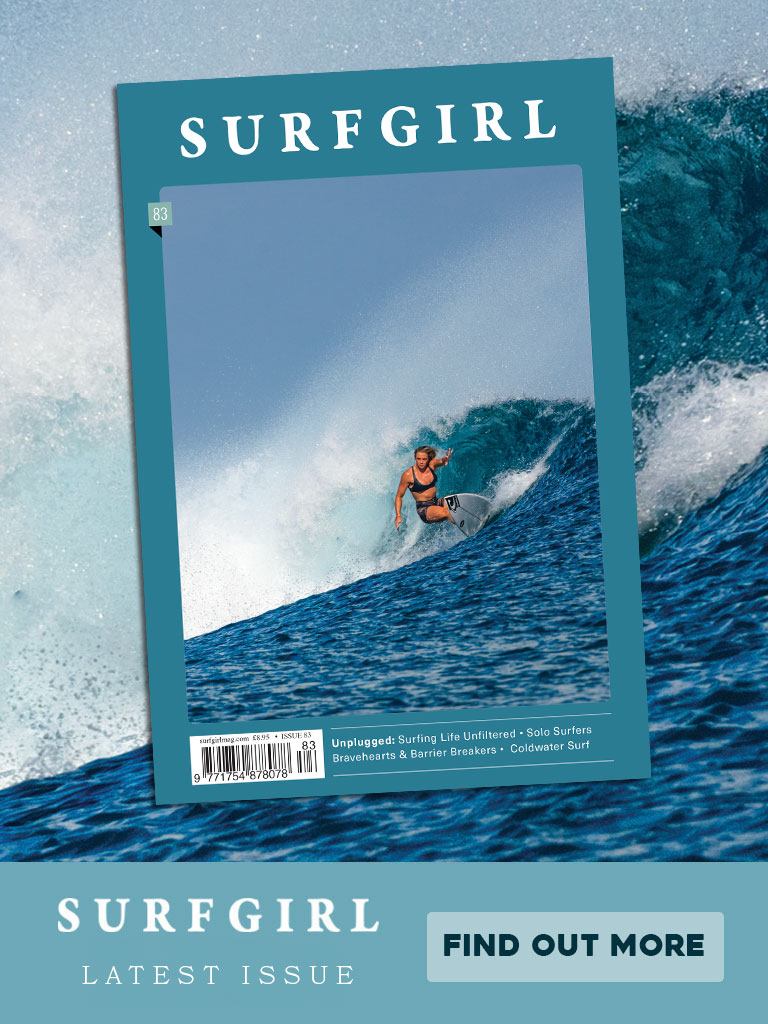“I keep it simple and don’t load my life with unnecessary items.” Lea Brassy
Lea, when did you take up surfing and how has it become part of your life?
I started surfing on the beaches of Normandy when I was 12. As I grew older, it became evident that surfing would be a big part of my life. I organised pretty much everything around surfing, and still do.
Where have you travelled in the last year and what was the best experience?
I was working as a nurse in French Polynesia throughout 2015. Then I travelled to California, France, Norway and Japan. I was in Norway in March with my great friend, the Hawaiian diver Kimi Werner, and we went spearfishing for cod, surfed on a snow covered beach, spotted Northern Lights and foraged for seafood. It was the first time I shared my fairy-tale world – the snowy playground of Northern Norway – with a female friend and it felt amazing.
V.Colliard©2016 Patagonia Inc.
You’ve surfed in Greenland, Norway and Iceland. What’s it like surfing in such cold regions?
Surfing up north is rough, because of the cold water, strong winds and isolation. But it is also very enriching as it creates intense sensations and unique experiences. Good preparation and packing the right gear is key: I take a bigger size of boots so the blood can circulate easily, have a hot flask of tea ready for before and after a surf and have a windproof, insulated jacket for walking to the surf. And I also stay hydrated, which helps to keep warm.
Is it true that all your belongings fit into your Grandfather’s old van?
Maybe not any more, as my partner Vincent and I now also have a small sailboat in Tahiti. But this is the scale I have as a reference to make sure I keep it simple and don’t load my life with unnecessary items.
What do you think is the biggest concern facing our planet and what can we do to help?
Global warming is affecting our planet on every level, so anything we can do will help. We need to reduce our consumption on every level of life, reusing and repairing everything we can. But the main thing is not to buy stuff we don’t need. I always look for the most environmentally alternatives instead of buying new gear. Overall, I believe we need to educate ourselves to question green-washing marketing and ask companies really environmentally friendly questions. Our pressure will force change on a large scale.
Hevea plantation credit: T.Davis©2016 Patagonia Inc.
Your sponsor Patagonia is leading the way in environmental and sustainable practices, how do their values reflect your own?
I was raised and have always lived with simple values such as consuming less and recycling and reusing my stuff. I pay attention to where my food comes from, eat local and seasonal food, and bike to town rather than drive… and Patagonia’s values are based on very simple statements too. Patagonia encourages solutions on a business and individual level by re-instating knowledge about responsible practices that our elders were aware of, but that our modern life has somewhat forgotten.
Can you tell us about Yulex, which Patagonia use in their wetsuits, and how is it different to traditional wetsuits?
Yulex is 100% plant-based neoprene foam instead of being 100% petroleum based. Yulex has FSC accreditation as it uses the gum from Hevea trees grown in a forest that is managed in a sustainable way. It has taken nearly 10 years of research and investment to develop and the result is an amazing wetsuit with the highest technology, the most durability and the lowest environmental impact.
Describe your life right in five words.
Simple. Responsible. Adventurous. Challenging. Passionate
V.Colliard©2016 Patagonia Inc.









